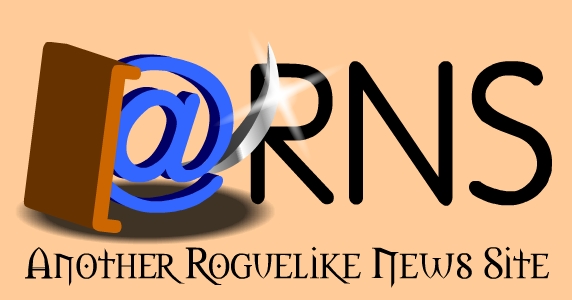This article was originally written for Darren Hebden's RLNews
One of the typical features of a roguelike game is that as many features as
possible have random appearances. So it may seem a logical conclusion to add
random names to the inhabitants of your virtual world as well.
However, you should consider to which extend you want to give names to NPCs.
Is it really necessary to have a name for every single orc, every single rat
and every single bandit? But then again, powerful creatures, such as dragons,
certainly deserve a well-sounding name. And of course, every shopkeepers would
dishonour their profession without one. I think it is a good idea to have
names for important and unique characters - people who give quests to the
player, or potential companions. But your opinion may vary, of course.
But how do you generate random names?
You can employ powerful algorithms which will use a given set of data strings
to generate random strings that are similar to the initial data. But there are
simpler ways. In my project, I used two approaches, which I will outline
below.
Combinations of given first and surnames
This method is quite simple. It uses three seperate lists with strings: one
with male and one with female first names, and one with surnames. The
following pseudo-code algorithm retrieves a new, random name.
switch Gender {
case male : S = male_firstnames [random]
case female : S = female_firstnames [random]
}
RandomName = S + " " + surnames [random]
If you need "Nordic" names like "Kunt Barnesson" or "Gudrun
Ingridsdotir"., you could use a variation of this:
switch Gender {
case male : S = male_names [random] + " " + male_names [random] +
"sson"
case female : S = female_names [random] + " " + female_names
[random] + "sdotir"
}
You could add a control structure in which you keep track of the names that
have already been generated, to prevent the algorithm from returning the same
name twice:
for i = 0 to 15 {
for j = 0 to 15 {
combination_given [i] [j] [male] = FALSE
combination_given [i] [j] [female] = FALSE
}
}
[...]
repeat
i = random
j = random
until combination_given [i] [j] [Gender] = FALSE
combination_given [i] [j] [Gender] = TRUE
switch Gender {
case male : S = male_firstnames [i]
case female : S = female_firstnames [i]
}
RandomName = S + " " + surnames [j]
In a proper program, you would probably use a bit-coded flags to check which
combinations have been generated.
Completely random names
The second algorithm described here doesn't use combinations of given names,
but generates them completely from scratch. The idea is to put together
combinations of vowels and consonants to generate words that might be names.
By using specific sets of sounds, you can control the "flavour" of the names,
and you can combine it with gender endings.
First, you should define the vowel and consonant set:
vowels = "aeiou"
consonants = "bcdfghjklmnpqrstvwxyz"
Then, you generate a word, alternating between random vowels and random
consonants.:
S = ""
for i = 1 to random {
S = S + vowels [random] + consonants [random]
}
switch Gender {
case male : S = S + 'us'
case female : S = S + 'a'
}
If you want to add a surname, just repeat the above snippet without the gender
ending.
In this crude version, the algorithm will return rather ugly, artificially
sounding names. You could alter this by changing the probability for some
sounds, by using different vowel and consonant sets:
vowels = "aaaeeeiiou"
consonants = "bbbcdddffgghjkllmmmnnnppqrrssstttvwxyz"
These sets would make "a" and "e" three times and "i" two times as likely as
"o" and "u", with the corresponding values for the consonants. You could also
completely leave out some sounds.
The method above always returns names beginning with a vowel and ending in a
consonant (forgetting about the gender endings for now). To change this, you
could add after the first line a structure like the following:
switch random {
case 1 : S = consonants [random]
case 2 : { do nothing }
}
If properly implemented, the algorithm will give quite good - and sometimes
even funny - names. I'll give you a list of random samples of names my
implementation has come up with:
Salopatan Dolot
Lucara Vanibo
Xyxelan Ubem
Irabon Seboribal
Abasixi Abubodul
Sasipabi Itatop
Latanybor Ocifil
Obi Onu
Laso Pubyl
But my absolute favourite was Eri Fuzibidusi!
Titles
For a fantasy world, you may also want to add impressive titles. For example,
your player might meet a veteran soldier in some tavern. It would be nice if
he would be called something like "Olaran Ozatar, the Ogreslayer", wouldn't
it?
This can be easily done, with a modification of the first method described
above. Let's define a list of suffixes:
suffixes = ("slayer", "hunter", "friend", "hater", "seeker")
Assuming that you have your creature names stored in a similar list, you can
simply generate a title by
title = "the " + creaturenames [random] + suffixes [random]
If you combine the methods as described here, it shouldn't be a problem to
come up with as many exciting names as your roguelike game will ever ask for!
|
